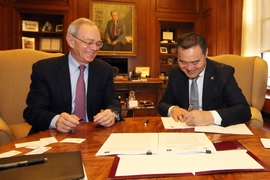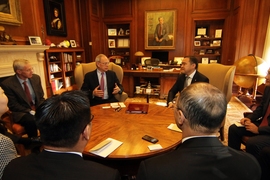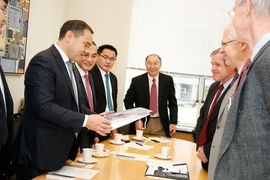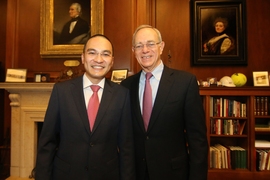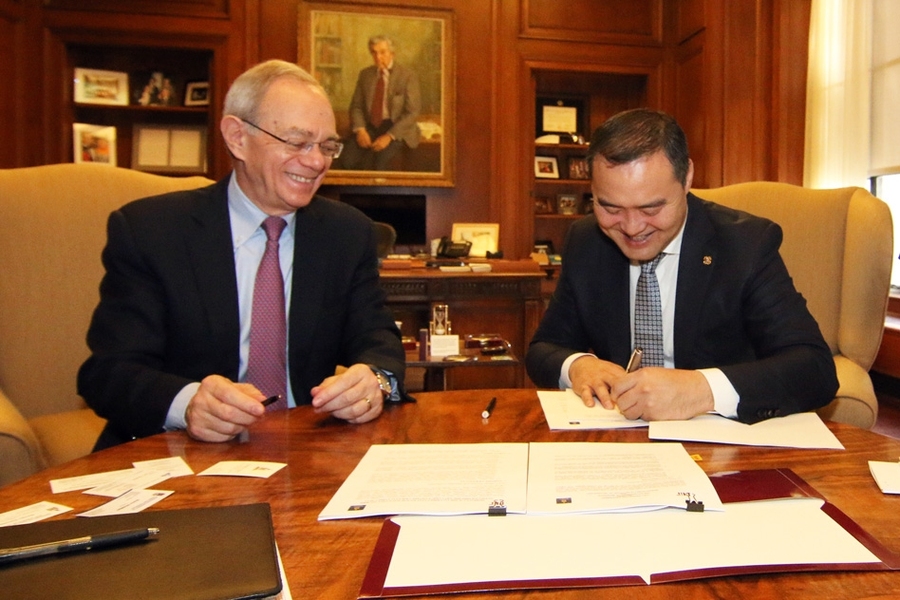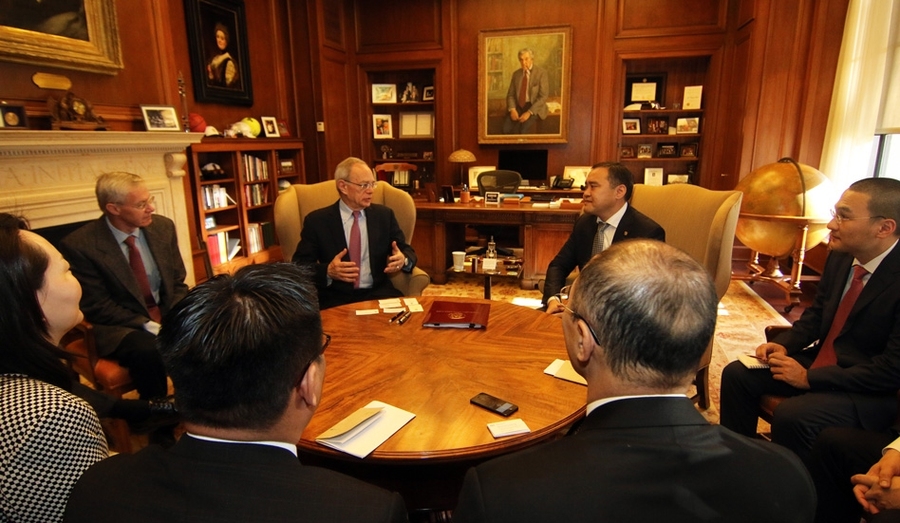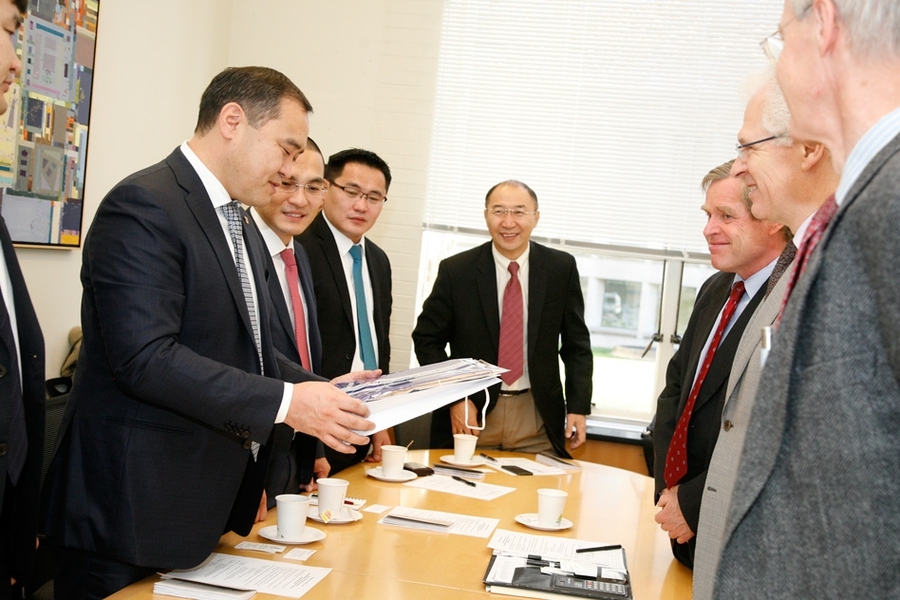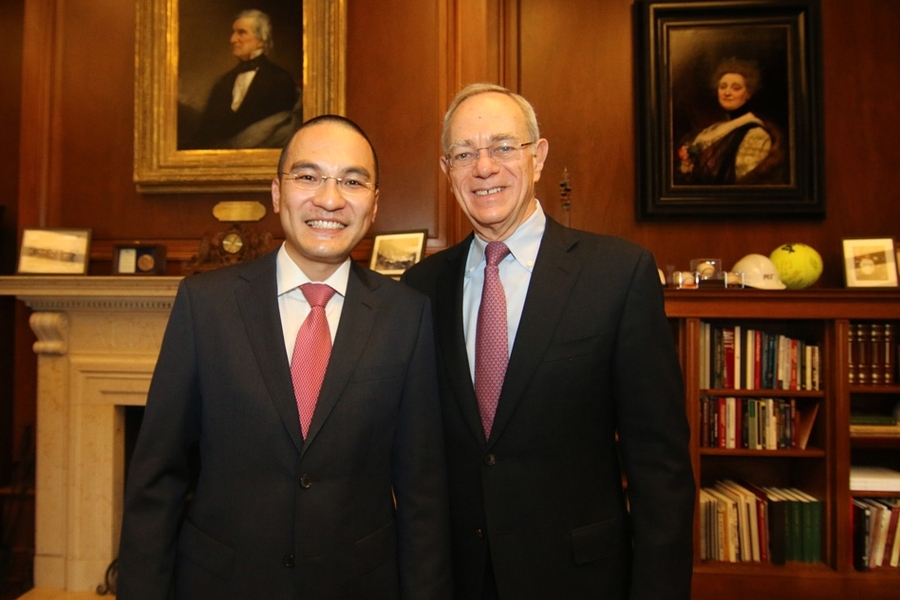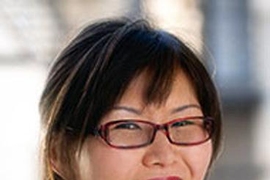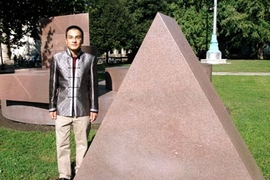MIT has announced plans to launch a pilot program in Mongolia that will include initiatives in faculty development, urban planning, and entrepreneurship. Institute President L. Rafael Reif and Gantumur Luvsannyam, the Mongolian minister for education, culture, and science, signed the agreement Wednesday morning at MIT. President Reif expressed his gratitude to Minister Luvsannyam for supporting the program and added: “We are delighted to work with Mongolia on a range of bottom-up activities which will set the basis for larger collaborative projects.”
“We are very pleased to be able to launch this new pilot program,” said Richard Lester, associate provost for international activities at MIT, whose office spearheaded the effort. “The program grows out of a series of careful discussions with our Mongolian partners, and we are confident that it will have an impact on the ground in Mongolia while also offering exciting opportunities to MIT students and faculty for learning and research.”
“Mongolia is a nation with great pride in its history and heritage. The nation is now at a turning point of grand vision by leveraging science and technology across various business verticals to make this vision a reality,” Luvsannyam said. “Partnering with MIT is a historical milestone to enable us as a nation to achieve our mission and create an innovation ecosystem.”
The program includes a number of activities planned for the upcoming year, some geared toward faculty and professionals and others toward students and youth. These activities will be coordinated in Mongolia by Enkhmunkh Zurgaanjin ’09 — the first Mongolian citizen to attend MIT. “As a graduate of MIT, it is my honor to be part of the MIT Mongolia program,” said Zurgaanjin.
Stephen Graves, professor of management and mechanical engineering, is the MIT faculty lead for the initiative. “The collaboration will start with a limited set of activities around mutual interests, with an emphasis on entrepreneurship-related activities; we will also do some sharing of pedagogical practices and some exploratory efforts focused on urban issues, as is very relevant for Mongolia,” Graves said. “The intent largely is to build relationships and get to know each other, setting the stage for a longer-term collaboration.”
The program includes a plan for staff from MIT’s Teaching and Learning Laboratory to travel to Mongolia and conduct workshops open to faculty from Mongolian universities and colleges, as well as an opportunity for a faculty member from Mongolia to spend a semester at MIT. A “Mongolia Urbanism Workshop” held at MIT will welcome up to 10 experts in urban planning from Mongolia, with the goal of identifying areas for collaboration in the future.
Under the MIT International Science & Technology Initiatives (MISTI) Program, a student Global Startup Lab team will travel to Mongolia for six to eight weeks next summer to teach mobile app development and to support student entrepreneurs from Mongolian universities in incubating new and innovative technologies. In parallel, a small student/faculty MIT “innovation Diplomat” (iDip) team under this MIT Innovation Initiative (MITii) program will also travel to Mongolia for two months next summer to undertake a mapping of the entrepreneurial landscape there and to recommend steps to strengthen the 'innovation ecosystem.'
“Mongolia is a fascinating country,” says Bernd Widdig, MIT director for international activities, who was part of an assessment team traveling to Mongolia in 2014. “There are great opportunities for research and for connecting our students with this young and dynamic democratic society that greatly values education and technological innovation to solve their challenges.”
